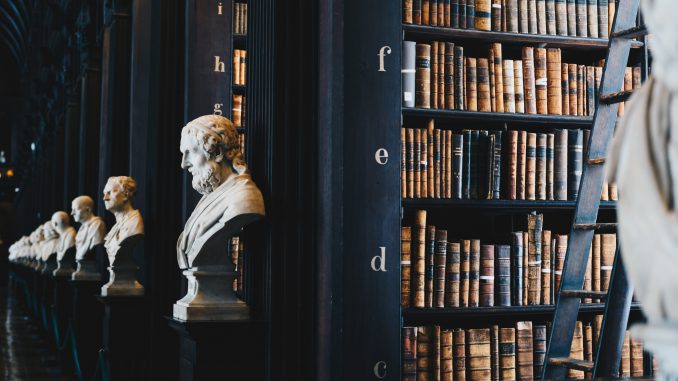

1. Internship opportunities
The best part of the Contemporary British History course so far has definitely been the opportunity to undertake an internship in place of a second term module. During my internship at the Royal Anthropological Institute I have been reading a collection of letters that have not been read before. Engaging with primary sources that no one has investigated before is an amazing and interesting task, especially as I have been able to make my own, original interpretations of the materials. This has been a unique opportunity, one that enables development of skills as well as engagement with History outside of the usual structure, which is particularly beneficial if you want to pursue a historical career.
2. Choosing other modules
At King’s, you are not always limited to the modules from your department. For my MA, I have been able to take modules such as ‘The Blair Years’, which is a Political Science module. Not only does this give you the chance to meet even more people at King’s, it also means that you can expand your learning beyond traditional historical topics. Others on the Contemporary British History course have done the same, choosing Philosophy modules, for example.
3. Speakers / Talks
One benefit to taking an interdisciplinary module such ‘The Blair Years’ is that a wide range of speakers have come to our seminars, including Ed Balls, Michael Barber and Anji Hunter. This is exclusive to this module and is so informative and insightful for the course and my personal work. Even though I am based in a historical course, I have never felt out of my depth while taking this political module; the seminar leaders are incredibly supportive and knowledgeable, acknowledging that not everyone has the same understanding of politics and government. Furthermore, as part of this module, we were invited to a talk given by Tony Blair at King’s College. It was incredible to hear the opinions and experiences of Blair, as he is the main focus of our module. Overall this module has provided networking opportunities as well as an in-depth look at this period of government, enriching my Contemporary British History MA.
4. Range of lecturers
The structure of Contemporary British History means that there are a variety of seminars lead by a range of incredible lecturers. This mixes up your learning as each lecturer approaches seminars slightly differently, keeping those early starts interesting! You really feel that you’re getting expert knowledge, and the best quality of teaching, and every lecturer is always on hand to offer advice and support.
5. Great community
Since I completed my undergraduate History BA at the University of Bristol, I was not sure how university life would work in London. However, I was pleasantly surprised to find that King’s has a really strong identity. The courses are smaller, and people generally choose a Master’s because they really love the subject, which means that you easily meet like-minded people that come from all over the world! It has been lovely to work together with my course group and explore different areas of London, including the libraries, archives and museums, as well as the nearby cafes for some well-earned rest.
Read More
King’s provides more information on the Contemporary British History MA, including an overview and course detail.
You can read Gabrielle’s Day in the Life of a History Student too.

Leave a Reply